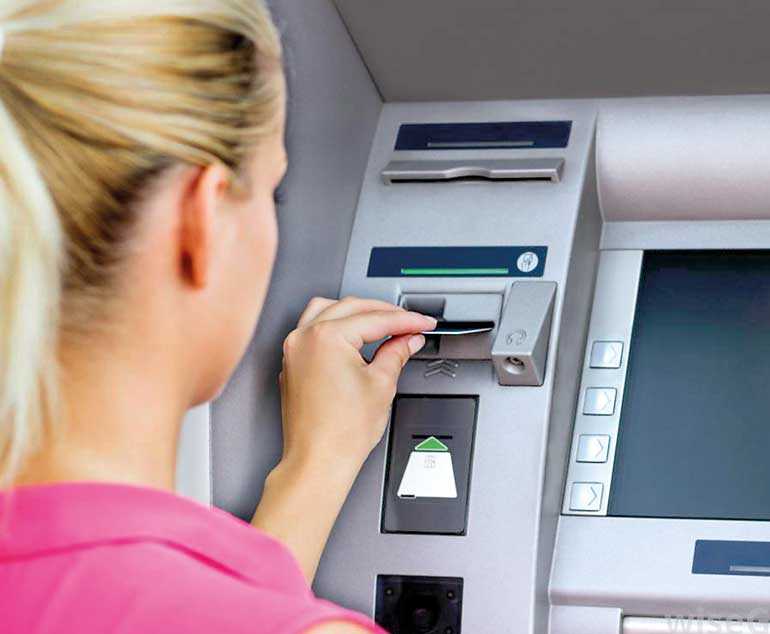Sunday Feb 22, 2026
Sunday Feb 22, 2026
Tuesday, 31 December 2019 00:22 - - {{hitsCtrl.values.hits}}

The practice of drawing foreign currency via ATM cards by Sri Lankan migrants and international students has been curbed by bringing in rigorous systems preventing the withdrawal of the respective foreign currencies of their choice via ATM’s located all over the world
By Sunil Thenabadu
Sri Lankan foreign exchange racketeers are gesticulating to sneak through any loopholes in the Exchange Control regulations to conquer in order to pilfer foreign currencies in massive quantities. Central Bank Exchange Controller Unit Foreign Exchange Director R. Jayaratne has been successful in thwarting pilfering of foreign currencies by unscrupulous elements thereby preventing the colossal loss of foreign exchange by the acts of such racketeers and our Sri Lankan civic scattered, migrants, international students all over the globe.
The practice of drawing foreign currency via ATM cards by Sri Lankan migrants and international students has been curbed by bringing in rigorous systems preventing the withdrawal of the respective foreign currencies of their choice via ATM’s located all over the world.
This has been made conceivable through the amended Act No. 12 of 2017 of the Director of Foreign Exchange familiarised over two years ago. The Director of Foreign Exchange has tutored all commercial banks to classify all accounts maintained by migrants and international students as CTRA (Capital Transaction Rupee Account) preventing the withdrawal of related Foreign Currencies from ATM’s in overseas countries, consequent to blocking these accounts.
All commercial banks have been instructed to refrain from issuing ATM cards to those CTRA holders. These timely interventions have prevented culprits from withdrawing foreign currency in incomparable amounts floating exchan ge control regulations, since fashioning Act No. 12 of 2017
All commercial banks have been instructed to refrain from issuing ATM cards to those CTRA holders. These timely interventions have prevented culprits from withdrawing foreign currency in incomparable amounts floating exchange control regulations, since fashioning Act No. 12 of 2017.
The easy extraction of foreign currencies from ATM’s has been thus stalled. However, it is learnt that legitimate deposits like proceeds of interest on fixed deposits, dividend warrants, pensions, etc. could be transferred on request to the related accounts in foreign currencies maintained by CTRA holders domiciled overseas.
The writer, domiciled in Brisbane, Australia too had encountered this restriction. But upon calling the CTRA unit on 0012477255, the problem was resolved when the Director of the CTRA unit himself R. Jayaratne explained the manner through which the CTRA holders could navigate in transferring funds in the respective currencies in a legitimate manner for monthly interest on deposits sans much of a hassle.
However, there is another snag. The commercial bank with whom I have fixed deposits has conveyed to me strangely that a tax clearance certificate from the IRD would have to be obtained by the client himself. Obtaining of the tax clearance is itself a bit of a hassle where so many documents need to be furnished.
The undersigned wishes to inform that in terms of Exchange Control regulations all migrants in addition to having an initial allowance of a sum equivalent to $ 200,000 and a yearly allowance of $ 20,000 a year. I also wish to emphasise that the undersigned has utilised a only a sum of Rs. 10 million and in the subsequent years Rs. 1 million and Rs. 5 lakhs only very much lower than the approved quota.
It is presumed that the Controller of Inland Revenue, Business Consultation Unit in the IRD should have known the above and would have simply authorised the Tax Clearance certificate or conveyed that it is not required also as the tax clearance had already been obtained at the time of migration. The ultimate result is the writer to give up this endeavour because of so much red tape. Is this not the typical Sri Lankan administration? This is food for thought.
Is the tax clearance certificate really necessary?
(The writer is based in Brisbane and is a CTRA holder.)